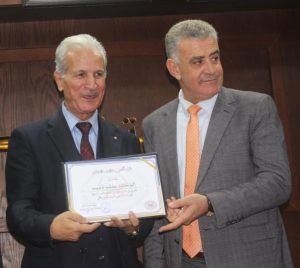Today marks the 139th anniversary of the birth of the late comedic artist Mohamed Kamal Al-Masry, known as “Sharafnath” (1886-1964), one of the most prominent stars of comedic theater in the first half of the twentieth century. He is considered one of the first to present popular comedy in Egypt and is also recognized as the first to discover the talent of the late musician Sayed Darwish.
Sharafnath was born in the Mohamed Ali district of Cairo in 1886 to a conservative family; his father was a professor at Al-Azhar. His artistic talent began to emerge during his studies at Al-Helmiya School, where he joined the school acting troupe and amazed audiences with his early comedic performance.
Sharafnath was distinguished by his comedic roles that combined satire and popular wit. Although he was not the lead in films, his appearances were enough to bring smiles to the audience. He portrayed the character of a thin, grumbling old man in his unique style.
His most notable feature was his artistic partnership with major comedy stars of his era such as Naguib Al-Rihani and Ali Al-Kassar. He participated in famous films like “Si Omar” and “Salama Fi Khair,” where he shone in secondary but memorable roles that remain in the audience’s memory to this day. Sharafnath excelled at creating comedic situations from the simplest details, making him one of the most popular artists during his career.
Sharafnath passed away on October 25, 1964, leaving an indelible mark on the history of Egyptian comedy, always remembered as a pioneer who blended simplicity and intelligence to delight audiences.













Recommended for you
Exhibition City Completes About 80% of Preparations for the Damascus International Fair Launch
Talib Al-Rifai Chronicles Kuwaiti Art Heritage in "Doukhi.. Tasaseem Al-Saba"
Unified Admission Applications Start Tuesday with 640 Students to be Accepted in Medicine
Egypt Post: We Have Over 10 Million Customers in Savings Accounts and Offer Daily, Monthly, and Annual Returns
His Highness Sheikh Isa bin Salman bin Hamad Al Khalifa Receives the United States Ambassador to the Kingdom of Bahrain
Al-Jaghbeer: The Industrial Sector Leads Economic Growth